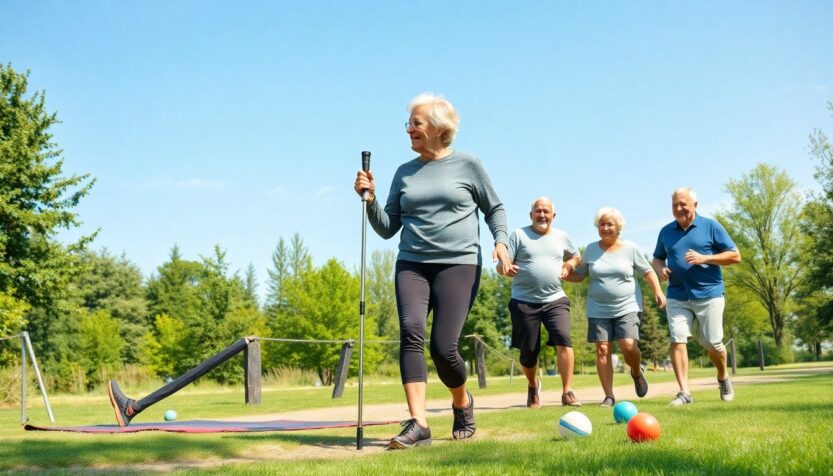Reframing aging: the emergence of superagers
Aging often brings to mind a decline in physical and cognitive abilities. Many individuals expect a gradual slowdown in movement, fading memories, and reduced energy levels as they grow older. However, a remarkable group known as SuperAgers defies this stereotype. These individuals maintain impressive vitality and sharpness well into their 80s, 90s, and beyond. Their experiences challenge conventional narratives about aging, revealing a journey filled with engagement, energy, and joy.
Research conducted over the past two decades presents compelling evidence that cognitive decline is not an inevitable part of aging. Many SuperAgers excel in memory and attention tests, often performing on par with individuals thirty years their junior. This finding prompts a reevaluation of long-held beliefs about the aging process.
Scientific insights into superagers
Recent research examining the brains of 79 deceased superagers has uncovered significant insights. Post-mortem analysis revealed these brains exhibited remarkable resilience, demonstrating a notable absence of neurodegenerative plaques and tangles typically linked to conditions like Alzheimer’s disease. These findings indicate that while genetics may contribute to longevity, the lifestyle choices made by superagers are equally vital.
Healthy habits and lifestyle choices
SuperAgers distinguish themselves through their proactive lifestyle choices. They emphasize the importance of physical activity, maintain a nutritious diet, and actively pursue mental challenges. A significant study known as the Blue Zones, led by Dan Buettner, pinpointed five regions globally where residents enjoy notably longer and healthier lives. These regions are Okinawa in Japan, Sardinia in Italy, Nicoya in Costa Rica, Ikaria in Greece, and Loma Linda in California.
Emulating the Blue Zones
Incorporating the characteristics of SuperAgers can be achieved by integrating the five essential practices identified in the Blue Zones into your daily routine:
- Engage in natural, low-impact physical activities, such as walking instead of driving, cultivating a garden, or choosing stairs over elevators.
- Focus on a diet rich in whole foods. Embrace fruits, vegetables, and legumes while minimizing meat and processed items.
- Implement stress management techniques, including daily meditation or Tai Chi. Ensure adequate sleep, aiming for 7 to 8 hours per night for individuals over 65.
- Discover yourikigai, a Japanese term that signifies one’s reason for being or purpose in life.
- Foster strong community ties and maintain social networks through family, friendships, or faith-based affiliations.
While factors such as diet and exercise are undoubtedly important, the most significant influences on healthy aging appear to be connection and purpose. Studies indicate a strong correlation between having a sense of purpose and successful aging.
The power of purpose
Research into the Okinawan population has revealed that the Japanese concept of ikigai plays a significant role in longevity. A profound sense of purpose encourages individuals to adopt healthier lifestyles as they age. Cultivating this sense of purpose is crucial for achieving improved health outcomes and enhancing overall well-being.
Discovering one’s purpose shifts the focus from mere personal gratification to contributing to a larger cause. This transformation nurtures a sense of meaning, direction, and fulfillment. It inspires individuals to tackle challenges and dedicate themselves to greater objectives. In the context of healthy aging, purpose has emerged as a more significant predictor of longevity than the pursuit of happiness alone.
The importance of connection
The importance of social connections in SuperAging
Deep and meaningful relationships are essential to the concept of SuperAging. Research indicates that loneliness can have health effects comparable to smoking 15 cigarettes daily. In contrast, individuals who nurture strong social connections tend to live longer and enjoy a better quality of life.
Engaging with others offers several significant benefits:
- Sharing laughter or having heartfelt conversations acts as a buffer against stress, which can negatively impact brain health.
- Every interaction, from debates to storytelling, stimulates the mind and helps maintain cognitive sharpness.
- Being part of a community encourages engagement and inspires SuperAgers to stay active and forward-thinking.
Embracing the secrets of vibrant aging
To promote longevity and well-being, adopting the practices of SuperAgers can be transformative. These individuals exemplify resilience through various enriching habits. Engaging in activities such as reading, learning new skills, playing an instrument, or even starting a new career can significantly enhance cognitive vitality.
Physical activity also plays a crucial role in this journey. Gardening, hiking, or dancing not only keep the body fit but also elevate the spirit. Maintaining a sense of humor, alongside practicing flexibility and gratitude, contributes to emotional resilience.
Perhaps the most vital element is discovering your purpose and nurturing connections with others. These relationships are foundational to a fulfilling life.
For those interested in delving deeper into the principles of vibrant aging, additional resources and insights are available on my website.

